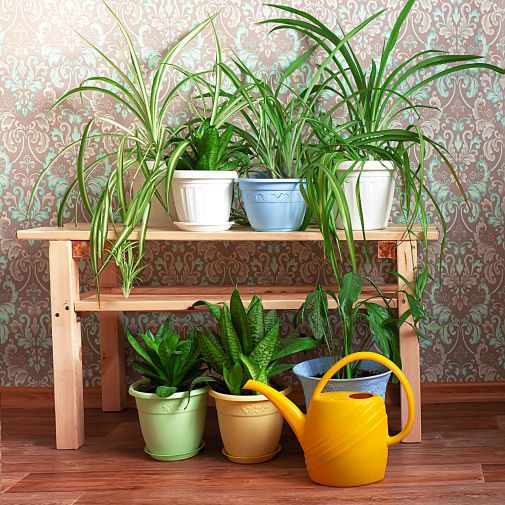People have been using plants such as ferns and succulents to brighten up their homes for millennia, but how much of an impact do they have on our environment and wellbeing?
 How can houseplants improve human health and wellbeing?
How can houseplants improve human health and wellbeing?
A new project is exploring the role of plants and green infrastructure in improving indoor environmental quality and promoting health in the face of climate change.
The GREENIN Micro Network Plus project brings together a multidisciplinary team of experts from the University of Surrey, University of Oxford, University of York, UK Centre for Ecology & Hydrology (UKCEH), University of Bath, and Cranfield University to investigate how indoor plants can improve air quality, regulate temperature and control humidity inside buildings.
Practical guidelines
With £600,000 funding from UK Research and Innovation (UKRI), researchers aim to conduct collaborative studies to expand knowledge on the broader health benefits of indoor greening, create practical guidelines and actionable solutions to enhance the design of both working and living spaces, and promote the wider use of green infrastructure.
Professor Prashant Kumar, Founding Director of the Global Centre for Clean Air Research and leader of Micro Network Plus, said: "While outdoor greening solutions like green walls and trees are well- researched and increasingly popular, we lack a clear understanding of how indoor plants affect indoor environmental quality, their interplay with outdoor greening near buildings, and how their impact will change as the climate warms. This new project presents an opportunity to answer essential questions about indoor greening and its potential to transform the way we live and work.
"The integration of indoor plants into building design could help us meet Net Zero goals, improving both the energy efficiency of buildings and the wellbeing of their occupants. Our findings could well help policymakers and designers make informed decisions that create healthier, safer living environments for future generations."
Interdisciplinary collaboration
The network also includes a collaboration of 27 local and international partners, including government organisations, academic institutions, councils, and charities that are committed to tackling the complex challenges of improving urban indoor spaces via the GREENIN Micro Network Plus Project, titled "Greening the Indoors: transformation of indoor environments in changing climate".
Professor Nic Carslaw from the University of York is a member of the team and explained that this research was important to better understand the role that plants play in affecting air quality and regulating humidity to promote greener living spaces with wellbeing benefits.
She said: "It is great to be part of this collaborative effort, which could help to shape the future of urban design. Alongside our new INTERIORS indoor air quality testing facility here in York, we are contributing to research that could have a positive impact on human health.
Critical understanding
"With people spending an estimated 90% of their time indoors, two thirds of their time in their homes, understanding how indoor air quality is influenced by different sources of pollution and how we reduce pollutant levels is critical. It is particularly important now as the government embarks on an ambitious housing drive. Our network will investigate whether plants can play a role in filtering the air and regulating humidity, which could potentially promote greener living spaces with wellbeing benefits."
The research will build on existing knowledge, and has wide-ranging potential benefits, providing evidence on whether and how indoor plants improve IEQ and create healthier spaces. This includes studying air quality, hygrothermal control - which is the regulation of temperature and humidity to create a comfortable and healthy indoor environment - and the biological, social, and psychological effects of indoor greening.
Shaping policy
The project is part of UKRI's broader initiative to fund transformative research that addresses key societal challenges, including climate change, urbanisation and public Health - particularly for vulnerable populations, such as the elderly and those with health conditions sensitive to poor air quality.
The funding will allow a range of activities, from testing greening interventions to engaging with local communities and stakeholders. This will form the basis for guidelines and policy advice that could shape future building design and urban planning.
Further information:
Members of the public, researchers, policymakers and industry professionals are invited to join the GREENIN network by completing the online membership form.











